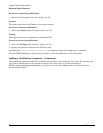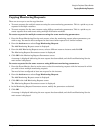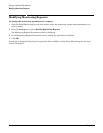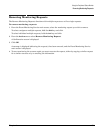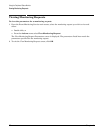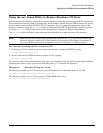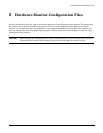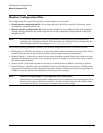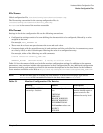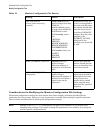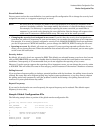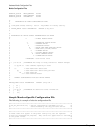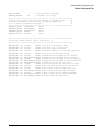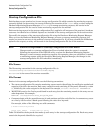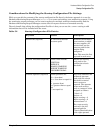
Chapter 5
Hardware Monitor Configuration Files
Monitor Configuration Files
86
Monitor Configuration Files
Two configuration files control the operation of each hardware event monitor:
• Global monitor configuration file. The settings defined in this file are used for all monitors, unless
overridden by a monitor-specific file.
• Monitor-specific configuration file. Each monitor includes its own configuration file with optimized
settings. Settings defined in the monitor-specific file override comparable settings defined in the global
configuration file.
NOTE As of the June 2000 release, several of the hardware monitors have been converted to be
“multiple-view” (Predictive-enabled). These monitors use a different file for configuration, the
Client Configuration File (for example, default_disk_em.clcfg).
The common operating parameters defined by the monitor configuration files for all monitors include:
• Polling Interval - identifies the frequency at which the monitor polls the hardware for status. This value is
selected to provide current device status without seriously impacting system performance.
• Repeat Frequency - indicates how often the same event should be reported. Events that continue to exist
should not overburden the system with a continuous stream of messages. A value of once a day is used as
the default repeat frequency.
• Severity Action - determines whether the severity level will be passed to EMS for reporting or ignored.
• Event Definition - identifies each event handled by the monitor, defines its severity level, and determines
what action the monitor will take when the event occurs. Actions include ignoring the event, passing it on
to EMS, or using the default action defined by the Severity Action setting.
NOTE When Do Changes Made to a Configuration File Take Effect?
Changes made to a monitor-specific configuration file are invoked at the next polling interval or
when an event occurs, which ever comes first. In either of these situations, the monitor reads
its configuration file for any changes and implements any new settings.



